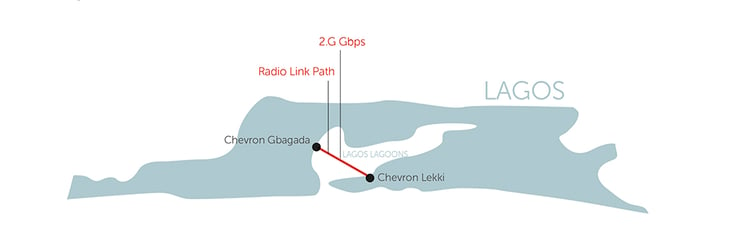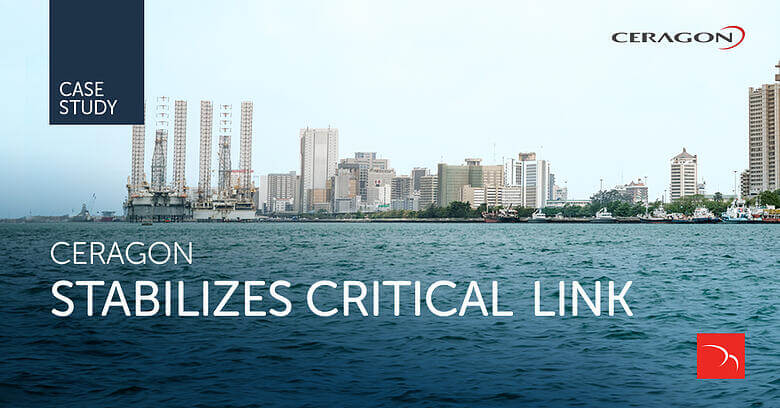A world-leading integrated energy company challenged Ceragon to provide a high-capacity wireless link over 20 km of water in Lagos Lagoon adjacent to Nigeria’s largest city.
After existing equipment failed to deliver a stable link, the Ceragon Africa team rose to the challenge by providing a stable connection using Ceragon’s high-power microwave radios.
The energy company needed a stable link for transferring data from Lekki to Gbagada (a neighborhood of Lagos) over a distance of 21 km across Lagos Lagoon. Ceragon’s competitor had already tried and failed to provide a reliable link.
The existing unstable link caused problematic delays in the energy company’s operations. The link was reported as constantly unstable, and it produced link flap (transition) alerts. Confirmed data included eight failures of the existing link in a 2-hour period.
Alerts caused automated emails to be distributed among the energy company’s management, causing additional pressure on the IT department and affecting its daily work. This added stress reduced the department’s ability to support critical offshore operations and forced it to repeatedly explain chronic problems to management.
In addition to its reliability problems, the existing microwave link provided insufficient capacity. On top of this, the main fiber link between the two locations was both expensive and prone to failure on occasion.
Lastly, the use of the 11 GHz frequency complicated matters. The 11 GHz band is usually not the first choice for long distances over water due to susceptibility to atmospheric scattering. While a lower frequency would have been preferred, this was not an option due to cost, regulatory and legislative reasons. The relatively calm water of the large Lagos Lagoon combined with marine traffic and considerable atmospheric ducting in the area only increased the challenge.

Read about the solution


